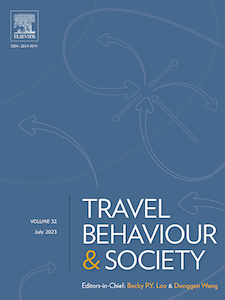Publication: « The impact of COVID-19 lockdown measures on gendered mobility patterns in France »
Julie Bulteau, Esté R. Torres, Marion Tillous (2023). The impact of COVID-19 lockdown measures on gendered mobility patterns in France, Travel Behaviour and Society, Volume 33, October 2023, 100615, https://doi.org/10.1016/j.tbs.2023.100615

The COVID-19 crisis has upset the way of life of our society. The objective of this study was to apprehend the consequences of public health policies on mobility through the lens of gender. The analyses are based on a representative sample of 3000 people living in France. Travel behaviour was quantified using three mobility indicators (number of daily trips, daily distance travelled and daily travel time) that we regressed on individual and contextual explanatory variables. Two periods were studied: lockdown (March 17, 2020 until May 11, 2020), and post-lockdown (a curfew period: January–February 2021). For the lockdown period, our results show: (i) a statistically significant gender difference for the three mobility indicators. On average, women made 1.19 daily trips versus 1.46 for men, travelled 12 km whereas versus 17 km for men and spent less time on travel (23 min) than men (30 min); (ii) the degree of mobility was particularly sensitive to access to a car, according to a gender difference. For the post-lockdown period, our results reveal that: (i) women were more likely than men to make a higher number of daily trips (OR = 1.10, 95% CI = [1.04–1.17]); (ii) having only one or no car in the household impacted the mobility of women during the post-lockdown period; (iii) women regained some mobility but without reaching the pre-lockdown level. A better understanding of the factors influencing mobility behaviour, in lockdown and curfew periods, can provide some pathways to improve transport planning and help public authorities while tackling gender inequalites.



